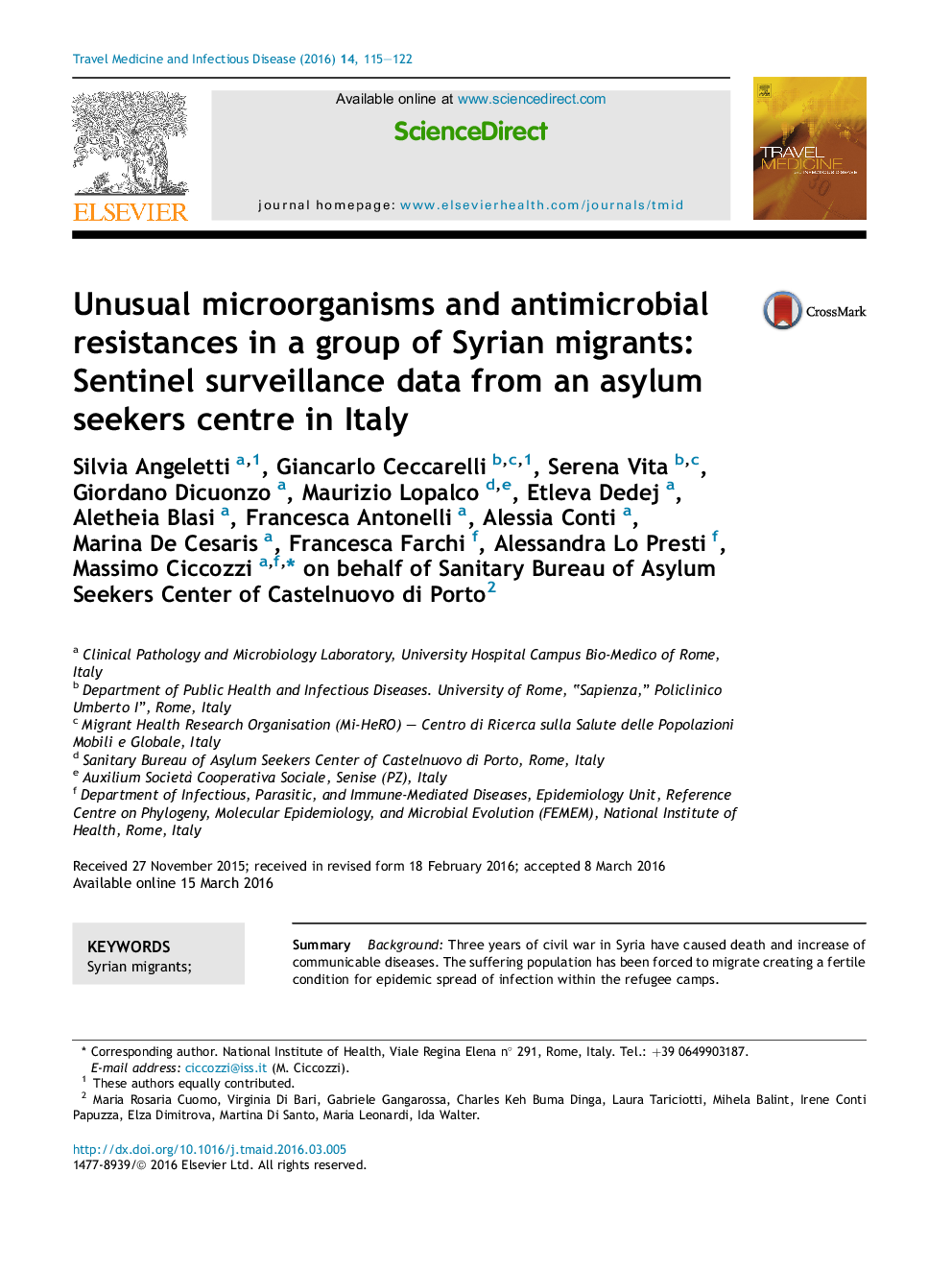| Article ID | Journal | Published Year | Pages | File Type |
|---|---|---|---|---|
| 3392735 | Travel Medicine and Infectious Disease | 2016 | 8 Pages |
SummaryBackgroundThree years of civil war in Syria have caused death and increase of communicable diseases. The suffering population has been forced to migrate creating a fertile condition for epidemic spread of infection within the refugee camps.MethodsForty-eight Syrian migrants, upon their arrival in Italy, were accommodated at the asylum seekers centre of Castelnuovo di Porto. They received a physical examination and were subjected to microbiological surveillance by blood, rectal, pharyngeal and nasal swabs collection and delivering to the Clinical Pathology and Microbiology Laboratory of the University Campus Bio-Medico of Rome.ResultsAll refugees resulted negative for HBV, HCV and HIV infections. In swabs a large number of unusual gram-negative bacteria species were isolated, such as Pseudomonas putida, Pseudomonas monteilii, Pseudomonas fulva, Pseudomonas moselii, Aeromonas veronii, Aeromonas caviae, Aeromonas hydrophila, Acinteobacter guilloviae, Acinteobacter lowffii; Acinetobacter johnsonii; Acinteobacter tjernbergae; Pantoea agglomerans; Pantoea calida. Among isolates, strains resistant to carbapenems, ESBL producers and methicillin resistant were found.ConclusionsThe microbiological surveillance performed represents a useful action to understand refugees health status and to trace unusual microorganisms movement even carriers of antimicrobial resistance during migrants traveling.
